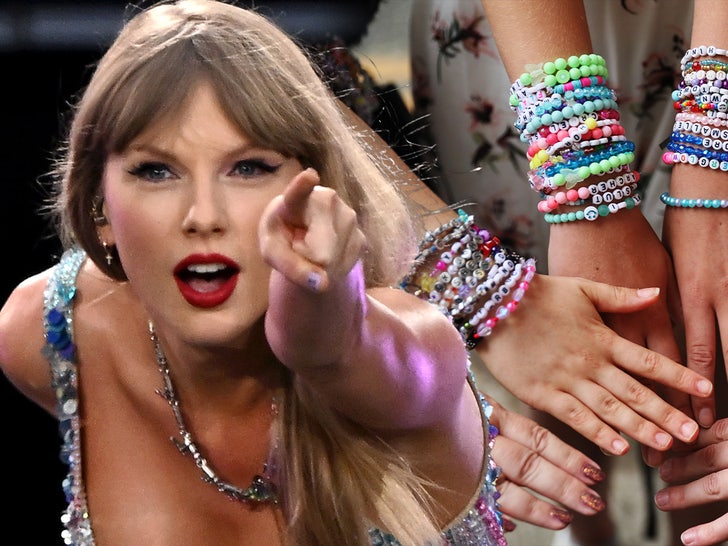President Trump spared Russia from the tariffs he had imposed on 180 other nations in a bid to reshape global trade. But that did not exempt the country from the ensuing economic havoc.
The price of oil, the lifeline of Russia’s economy and war machine, has fallen nearly 15 percent since Mr. Trump announced the tariffs on April 2, setting off fears of a global recession. This week, the U.S. president suspended many of the levies for 90 days. The damage to the global economic outlook, which drives oil prices, is likely to be more lasting.
If the oil slump continues, the Kremlin is likely to begin cutting spending as soon as this summer, analysts say, and the slashing could eventually hit the military.
This means that in the long run, Mr. Trump’s trade measures could inadvertently do more to damage Russia’s ability to fund its war against Ukraine than the West’s systematic imposition of the most comprehensive package of sanctions in modern history.
Before the current economic shock, President Vladimir V. Putin had been on a roll. He had regained momentum in the war and seemingly pulled Mr. Trump closer to his side on the conflict.
The Trump administration has opened a diplomatic and economic assault against European allies that have been steadfast supporters of Ukraine. And a decoupling of trade between the United States and China could weaken both nations, while opening opportunities for other powers like Russia, a situation that would bring Mr. Putin’s vision of a “multipolar world” closer to reality.
For the Kremlin, however, any long-shot geopolitical benefits from a global trade war are overshadowed by immediate economic pain. The plunge in oil prices has struck Russia in perhaps its most vulnerable spot — an economy heavily concentrated on energy exports and far less diversified than those of its peers.
Russian officials have already begun preparing the population for tighter belts.
The global markets are “extremely turbulent, tense and emotionally overloaded,” the Kremlin spokesman, Dmitri S. Peskov, told reporters on Monday in a rare economic comment. He added that the Russian authorities were working to minimize “the effects of this international economic storm.”
The influential head of Russia’s central bank, Elvira Nabiullina, voiced alarm in a typically understated manner on Tuesday, when she told the country’s lawmakers that the main effect on Russia from Mr. Trump’s policies would be falling oil prices. “There are risks here,” she added.
Analysts say that Russia’s economy is not about to collapse, even if oil prices remain low for months to come. But the slump in oil revenues does threaten Mr. Putin’s ability to continue funneling record amounts of money into the military — the most since Russia emerged in 1991 from the dissolution of the Soviet Union — while shielding the Russian population from the worst of the war’s economic effects.
Oil exports finance about a third of Russia’s total federal budget. The government has earmarked the equivalent of nearly $136 billion for defense and security this year, nearly triple the amount it spent a decade ago, according to calculations by the military analyst Pavel Luzin.
Mr. Putin is likely to shield the military from spending cuts for as long as possible, analysts said.
Civilian infrastructure such as roads, bridges and subways would be the first to get the ax, said Sergey Vakulenko, a Russian oil expert at the Carnegie Russia Eurasia Center, a policy research organization based in Berlin. “But the cuts might eventually reach the military spending,” he said.
Mr. Trump’s trade turmoil came at a particularly bad time for the Russian economy. A group that includes Russia and some of the world’s other major oil producers, known as OPEC Plus, unexpectedly announced earlier this month that it would speed up its planned output increases, putting more downward pressure on oil prices.
Russia is also contending with a stronger national currency, the ruble, as Mr. Trump’s attempts to broker a cease-fire in Ukraine have fed hopes that the White House will lift sanctions against the Russian government and Russian companies. Oil usually trades internationally in U.S. Dollars, so the strengthening ruble has meant that the Russian treasury collects fewer rubles for each barrel exported.
Even before oil prices nose-dived, Russia’s budget deficit had more than doubled because of increased spending, to 1.3 percent of gross domestic product, in the first two months of this year. By the end of February, just 16 percent of the way through the year, the government had spent nearly 20 percent of the money earmarked for 2025, government figures show. More than 40 percent of the annual budget is allocated to defense and security.
Locked out of global financial markets, the Kremlin has found its ability to bridge that funding gap narrowing.
The government’s rainy day hoard, the National Wealth Fund, has shrunk since the start of the war, and the portion that is easily sellable is now less than last year’s budget deficit, the Russian economic analyst Kirill Rodionov wrote this week.
The country’s record interest rates, set at 21 percent by Ms. Nabiullina to combat inflation, make it very expensive for the government to issue debt to local banks and investors, according to analysts.
In the longer term, the shock waves of Mr. Trump’s trade war threaten to damage Russia’s economy in less direct ways.
Mr. Trump’s seeming intent to decouple the U.S. economy from China, Russia’s most important ally, is likely to slow the Chinese economy. Analysts at Morgan Stanley last week estimated that Mr. Trump’s initial tariff proposal would drag down annual growth in China by 1.5 to 2 percentage points — and that was before the Trump administration raised the tariff on Chinese goods to 125 percent on Wednesday in an escalating tit for tat.
Slower growth, in turn, could reduce China’s demand for Russian oil and undermine the Kremlin’s successful strategy to redirect its commodity exports to Asia. The Biden administration and some U.S. allies tried to cut Russian oil revenue by capping the price it could fetch on global markets. The effort had some initial success, but Moscow has since largely circumvented the cap by selling to China and India.
Mr. Trump’s focus on trade imbalances could also impel some nations to buy more American oil and gas, which would damage Russia’s position in the energy market.
If the trade war escalates, a long-shot silver lining for Russia might come from the decoupling of the world economy from the U.S. financial system and the dollar. This would make Western sanctions against the Russian state less effective by providing Russian companies with alternative markets and payment methods.
Mr. Putin has long championed precisely such alternative economic arrangements, most notably with the group of major emerging economies known as BRICS.
“If the world economy would restructure itself away from the U.S., Russia could benefit,” said Aleksander Baunov, a Russian political scientist at the Carnegie Center.
Such structural changes could take years to take hold, and years more to be felt. For a government fighting a war of attrition for a fourth year, the fall of its main revenue source will be felt much sooner.
Oleg Matsnev contributed research.



